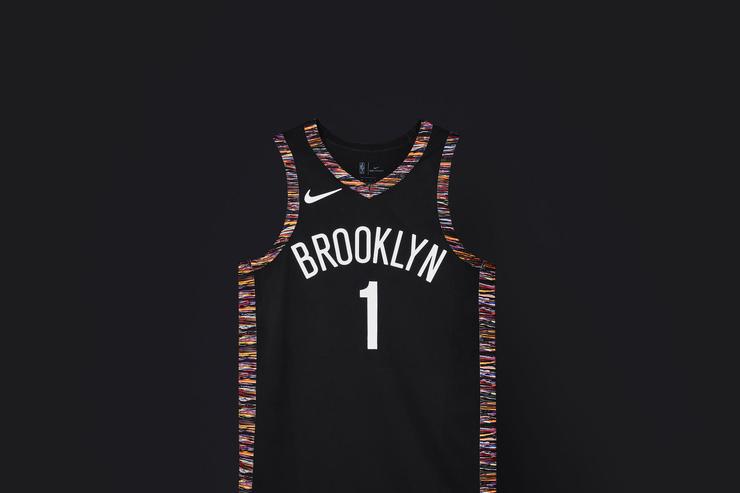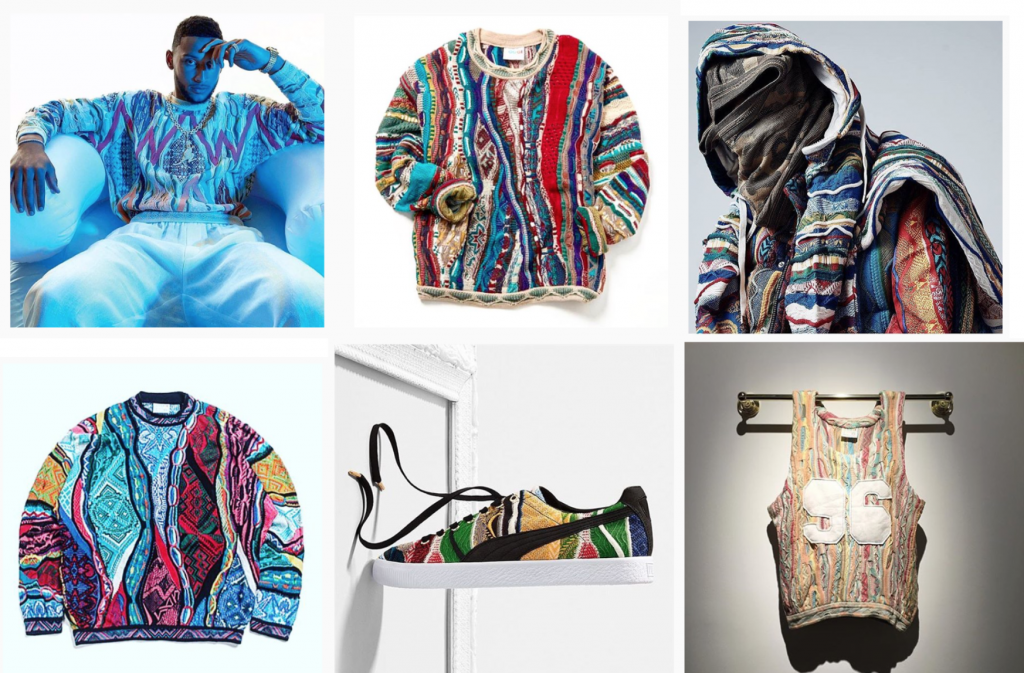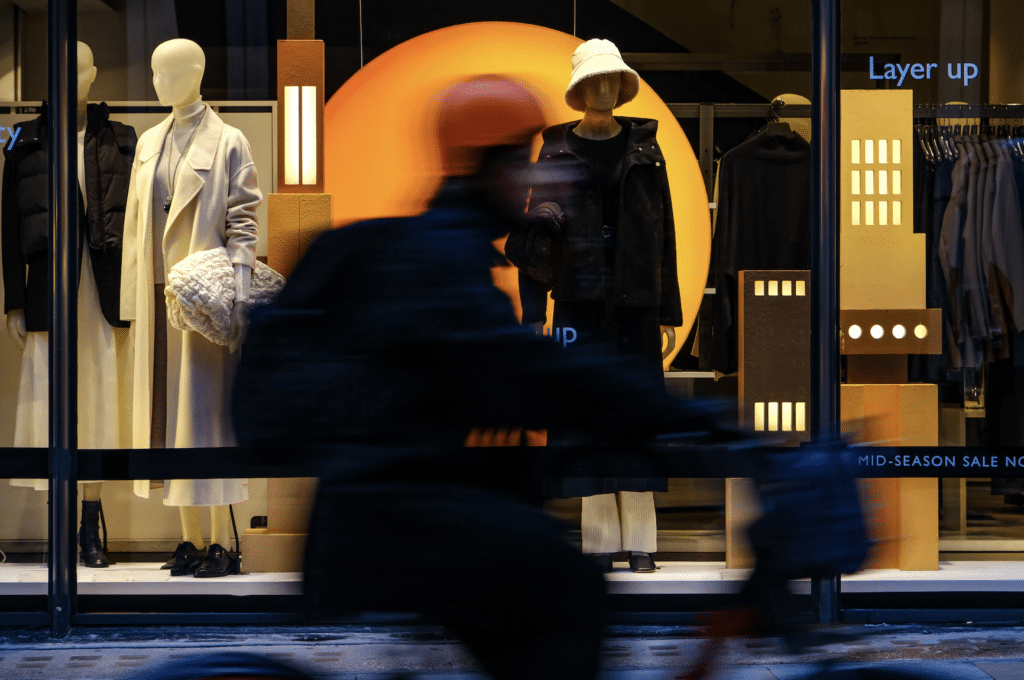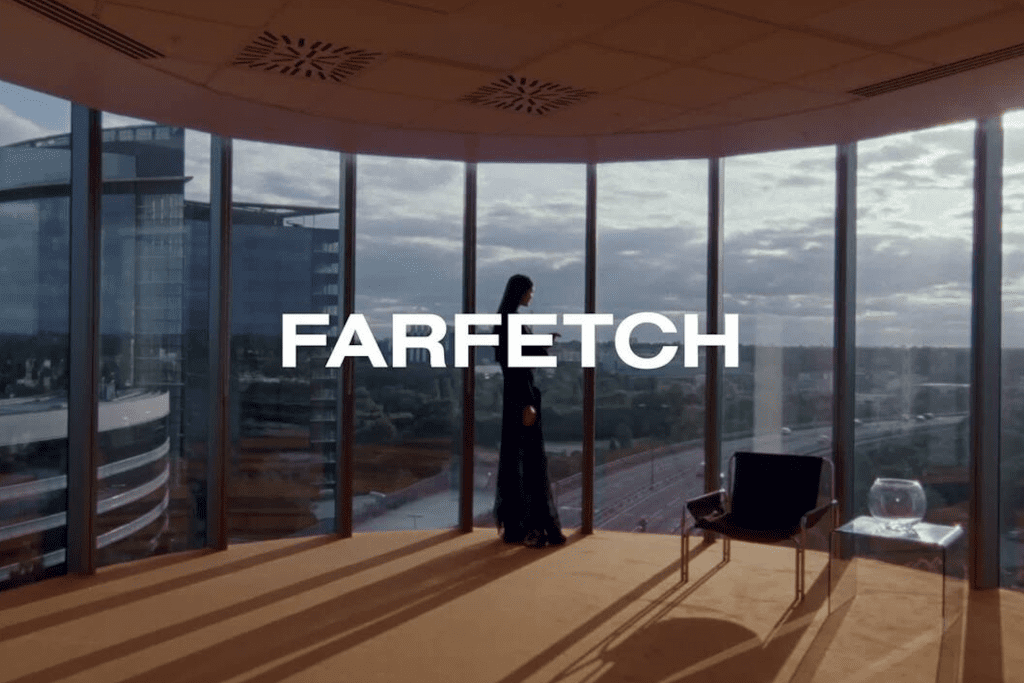Forget the ugly, clunky, chunky sneakers that have entranced fashion brands and their loyal customers in recent seasons. The National Basketball Association, the Brooklyn Nets, Nike, New Era, and Russell Brands, among others, are being hauled into court over an ugly sweater. Coogi, the New York-based brand behind the enduring line of colorful, Bill Cosby-esque knitwear, has called foul. To be exact, in response to the special “City Edition” jerseys that the Brooklyn Nets debuted last year, Coogi has cried copyright, trade dress, and trademark infringement, among other claims, in a newly-filed lawsuit.
According to Coogi’s complaint, which was filed last week in a New York federal court, the Brooklyn Nets introduced a brand new, Nike-manufactured “City Edition” jersey ahead of the 20018-2019 season, consisting of a black body and patterned, multi-colored trim. On Twitter this past November, the Nets boasted about the new get-up, stating, “Introducing our Biggie-inspired City Edition uniform.” It turns out, the late Notorious B.I.G. was a fan of a certain line of sweaters, ones that bore the same colorful striped design as the Nets’ new jerseys, going so far as to give a shout out in his song lyrics to the brand behind his sweaters: Coogi.
Since its re-location from the Prudential Center in Newark to Brooklyn’s Barclays Center in the summer of 2012 and its subsequent rebranding from the New Jersey Nets to the Brooklyn Nets, the basketball team has “closely aligned” itself, according to the New York Times, with the Brooklyn-born rap legend, hence, the jersey inspiration.
The problem, according to Coogi? While the jerseys make use of a near-identical print to the prints that adorn certain Coogi sweaters, neither Nike, nor the team, itself, ever received authorization to copy Coogi’s heavily-protected prints, thereby, giving rise to a slew of infringements.
The Nets’ jersey takes elements, per Coogi, from its “Pea Soup” and “Ricotta” patterns, which are protected by federal copyright law, thereby, legally prohibiting others from copying and displaying the prints, and from creating new, original products that include the prints. More than that, though, Coogi asserts that its prints enjoy even broader protections by way of trade dress law, a sect of trademark law that covers the visual appearance of a product’s design as long as the design signifies the source of the product to consumers.
 image: Nets’ City Edition jersey
image: Nets’ City Edition jersey
In other words, Coogi asserts that its trade dress – which includes “highly colorful individual vertical cables and ornamented sections consisting of multiple colors and intricate designs” and a “raised knit that appears 3-dimensional” – serves the same function as a brand’s name or logo. When consumers see a garment with these elements, they know it comes from the Coogi brand in much the same way as they know a bag was made by Chanel when they see a double “C” logo on it or a sneaker from Nike if it bears a swoosh design.
Corgi filed its complaint just days ago, but attached to the lawsuit are letters exchanged between its lawyers and those for the NBA, which show that the case has been brewing behind the scenes since November 2018, with the NBA fighting back against Coogi’s claims of infringement.
In one letter, Michael Potenza, vice president and intellectual property counsel for the NBA, pushed back against Coogi’s claims that the jerseys are “substantially similar” to Coogi’s sweaters. This is significant, as “substantial similarity” is the standard used to determine whether copyright infringement exists.
In a subsequent letter, Potenza pointed out specific differences between the two parties’ wares, noting, that the jerseys’ stripes are different in terms of color, direction, and position than those on Coogi’s sweaters. Assuming the parties make it to trial (and do not settle the case before then), it will be up to a jury to decide whether the Nets’ jerseys are “substantially similar” to the original, copyright-protected Coogi prints, and thereby, give rise to infringement.
While such differences in the prints, themselves, might be enough for the Nets and co. to escape copyright infringement liability, the standard for trademark and trade dress infringement is different, and centers, instead, on likelihood of consumer. In order to successfully make trademark and trade dress infringement claims, Coogi will have to show that due to the similar appearance of the Nets’ jerseys, consumers are likely to be confused as to the source of the jerseys. Such confusion could take the form of consumers believing that Coogi approved of or is affiliated with the jerseys or that the jerseys were borne out of a collaboration between Coogi and the defendants, which could be relatively easy task, especially since Coogi has been known to collaborate with sportswear brands, such as Puma.
Due to its 50-year long history, widespread media attention to its sweaters over the years, large-scale collaborations, and famous fans ranging from Biggie and Tupac to Conor McGregor, Rick Ross, Floyd Mayweather, and Russell Westbrook, among others, Coogi asserts that its designs “have acquired enormous value and recognition in the U.S. and throughout the world,” with “the consuming public [easily] identifying and distinguishing Coogi as the source” of such distinctive striped wares.
With that in mind, Coogi is seeking an array of monetary damages, as well as a court order that the defendants must immediately and permanently cease all manufacture, use, and sales of the infringing jersey and related wares, such as beanies and baseball caps.
In the meantime, the NBA has denied that there is any “merit whatsoever to [Coogi’s] claims.”
*The case is Coogi Partners, LLC v. NBA Properties, Inc., Brooklyn Nets, LLC, Nike Inc., et al., 1:19-cv-01857 (SDNY).














